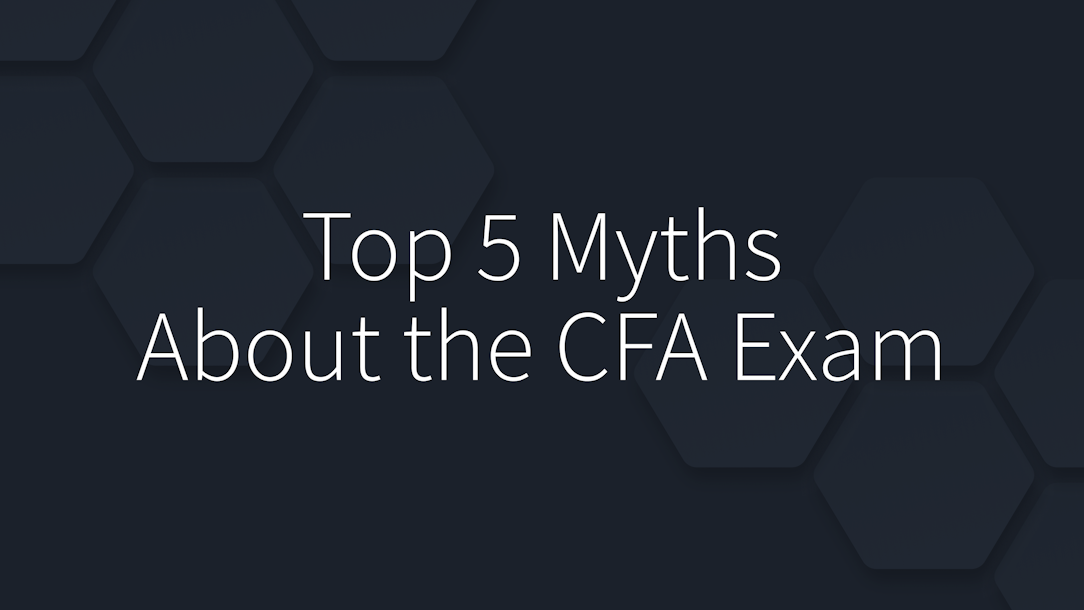Earning the CFA charter is getting more popular, and myths about the process abound! Let's bust the top 5 myths about the CFA exam, so you go in with the facts.
The CFA program has been gaining tremendous popularity, as evidenced by the increase in the number of candidates, especially in the last few decades. This inevitably led to the propagation of rumors, aided by the prevalence of online forums and blogs. Rumors that persisted eventually turned into myths.
We’ve created this article to bust five myths about the CFA exams so that you are aware of what the real picture is.
1. “According to X, Topic Y will not be on the exam.”
There is no doubt that the breadth of topics covered by the CFA exams can be overwhelming. This is why it is easy to believe theories that claim certain topics are (or are not) going to be tested. However, don’t fall into the trap of spending a great deal of time and energy on a handful of topics just because a “credible source” points you in that direction.
Anything in the CFA curriculum is fair game and the CFA Institute will never publish a list of topics that will or will not be on the exam. Pay particular attention to the Learning Objective Statements provided by the CFA Institute, as those are what the exams are based on.
2. “You will fail the exam if you fail Ethics.”
This is false. Keep in mind that doing well on the Ethics and Professional Standards topic is important and will make a difference if you happen to be on the fence. However, passing Ethics is by no means a requirement to pass the exam—it just means you have to do really well on everything else to make up for doing poorly on Ethics.
3. “I know someone who only started studying 1 month before the exam and passed. Studying 300 hours is overkill.”
One of the biggest questions CFA candidates ask is how much time they should put aside to adequately prepare for the CFA exams. The truth is, there is no single right answer. It all depends on how you study, how much hard work you put in, and how much you already knew beforehand.
Just about anyone with the right attitude and enough determination is capable of passing the exams. Having said that, you are recommended to spend 300 hours studying for each exam, but the amount of time you actually need may differ.
If you are a fast learner and have a strong background in finance, accounting, or economics from previous courses, then you probably don’t need as much time. If the material is new to you, make sure you start early to give yourself enough time.
4. “The CFA Institute curriculum has the best study material.”
The curriculum is from the people who set the exam, but that doesn’t mean the material is presented in a way that best suits your learning style. If you are struggling to go through the curriculum because of its sheer volume, consider the study course from a third-party provider. It may be well worth your money. Most providers not only summarize the information into easily digestible pieces but throw in useful insider tips as well.
At the same time, don’t disregard the curriculum completely. You may not find it great to study from, but you should consult the curriculum to clear up any confusion you may have or correct any false assumptions you may have made. Also be sure to take advantage of the end-of-chapter questions.
5. “Getting a CFA charter will get me a job.”
There are numerous factors that determine whether or not you get a job. Being a CFA charterholder tells your potential employer you have the ability and the discipline required for the job, which puts you one step above other candidates. But as with many things in life, there is absolutely no guarantee. While the CFA charter brings many potential benefits, don’t assume it’s your golden ticket into the industry.
